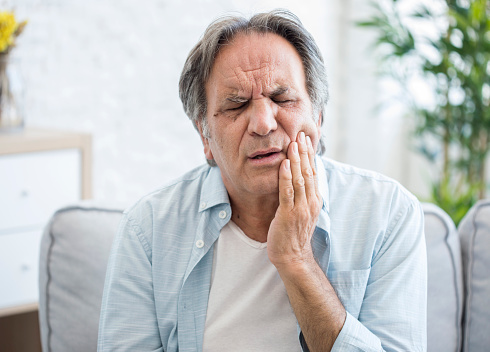The Hidden Culprits Behind Molar Cracks - It's Not Just About What You Chew
Posted on 11/1/2024 by Brush & Floss Office |
 We all know the importance of good oral care. Brushing twice a day, flossing regularly, and visiting the dentist for checkups are essential for maintaining healthy teeth and gums. But even with the best oral hygiene routine, some dental problems can still arise. One such issue is molar cracks. We all know the importance of good oral care. Brushing twice a day, flossing regularly, and visiting the dentist for checkups are essential for maintaining healthy teeth and gums. But even with the best oral hygiene routine, some dental problems can still arise. One such issue is molar cracks.
Molar cracks, also known as tooth fractures, can be painful and inconvenient. They can make it difficult to chew, and in some cases, they can even lead to infection. While many people associate molar cracks with biting down on hard foods, the truth is that there are many other factors that can contribute to this problem.
The Root of the Problem: Factors Beyond Your Bite
| 1~ |
Grinding and Clenching: Many people grind their teeth or clench their jaw at night, often without even realizing it. This constant pressure can put a lot of stress on your molars, making them more susceptible to cracking. |
| 2~ |
Uneven Bite: If your bite is uneven, it can put more pressure on certain teeth, increasing the risk of cracking. |
| 3~ |
Existing Fillings: Existing fillings, especially older ones, can weaken the tooth structure and make it more prone to cracking. |
| 4~ |
Trauma: A blow to the face or jaw can also cause cracks in your molars. |
| 5~ |
Underlying Medical Conditions: Certain medical conditions, such as diabetes, can make your teeth more brittle and susceptible to cracking. |
Taking Charge: Identifying and Addressing Molar Cracks
Early detection and treatment of molar cracks is crucial to preventing further damage and complications. Here are some things to watch out for:
| • |
Pain when chewing: This is the most common symptom of a molar crack. |
| • |
Sensitivity to hot and cold: A cracked tooth may be more sensitive to temperature changes. |
| • |
Visible crack: In some cases, you may be able to see the crack in your tooth. |
If you experience any of these symptoms, it's important to see your dentist right away. They will be able to examine your tooth and determine the best course of treatment.
Repairing the Damage: Options for Cracked Molars
Depending on the severity of the crack, your dentist may recommend different treatment options. These may include:
| • |
Monitoring: For small, hairline cracks that are not causing any symptoms, your dentist may simply monitor the crack and recommend regular checkups. |
| • |
Restoration: For larger cracks or cracks that are causing pain, your dentist may recommend a restoration, such as a filling, crown, or inlay/onlay. This will help to restore the tooth's strength and function. |
| • |
Extraction: In severe cases, where the crack is extensive or the tooth is badly damaged, extraction may be necessary. |
Taking Control: Prioritizing Prevention
While some factors contributing to molar cracks are beyond our control, there are steps you can take to prevent them:
| • |
Wear a mouthguard: If you grind your teeth at night, a mouthguard can help to protect your teeth from damage. |
| • |
See your dentist regularly: Regular dental checkups can help to identify and address problems early on, before they become more serious. |
| • |
Practice good oral hygiene: Brushing twice a day, flossing daily, and avoiding sugary drinks can help to keep your teeth healthy and strong. |
| • |
Avoid hard foods: If you are prone to molar cracks, it's best to avoid biting down on hard foods, such as ice or candy. |
By understanding the causes of molar cracks and taking steps to prevent them, you can help to keep your smile healthy and strong for years to come.
|
|